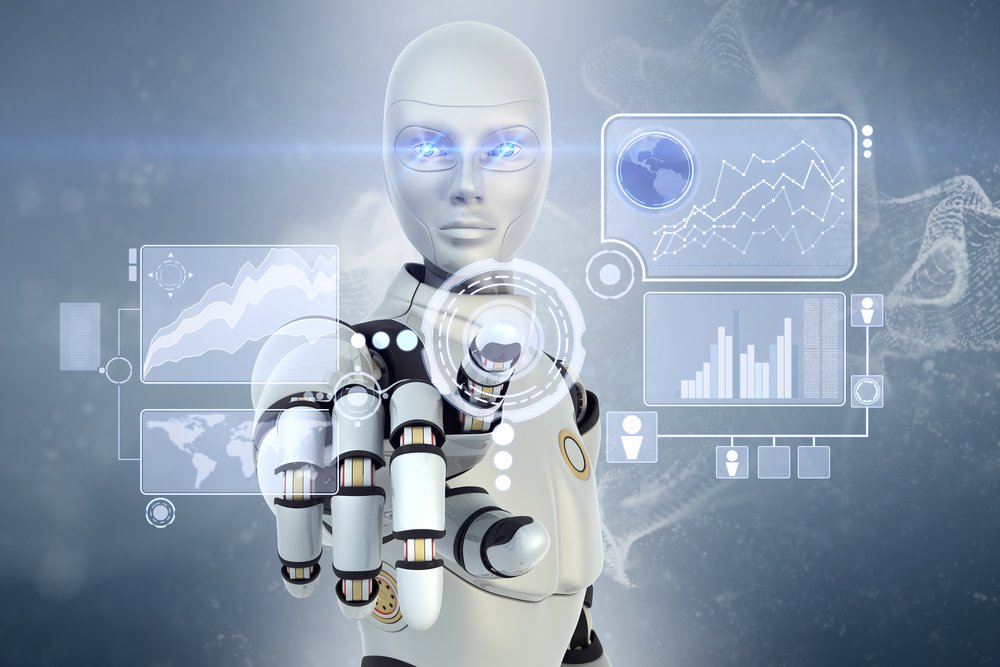Evolution of Artificial Intelligence System in healthcare
December 19, 2018 | Wednesday | Features | By Dr. Rajeev Boudhankar
The evolution of AIS and its application has a vast spectrum in healthcare.
Healthcare and Medicine has evolved from the primitive "magic man" to the modern "Artificial Intelligence System". However, the question whether Doctors would be replaced by the Artificial Intelligence System (AIS) is both a controversial and an ethical question.
The evolution of AIS and its application has a vast spectrum in healthcare. The most important reason is that there is non-availability of trained manpower in both medical and para-medical fields. While Doctors, Nurses, Physiotherapists, dieticians and Lab/Imaging Technicians are the front-end clinical staff, back-end human resources like Medical records technicians, billing staff, Administrative staff, maintenance staff, marketing staff, Finance/accounting staff, IT staff, etc. How can all these be replaced by AIS?
Let's take the work of doctors and nurses. AIS can have algorithms for arriving at a differential diagnosis based on symptoms and further also advise investigations based on another set of algorithms to arrive at a probable diagnosis. Even algorithms can be developed on likely treatment. But let us not forget that Medicine is both an art and science. It is not a pure science; hence two plus two will not make four. Not all diseases can be diagnosed on AIS based algorithms and even treatments will differ based on individual genetic makeup. Example- patient may have allergic reactions to certain drugs and react differently to the same set of "factory based" AIS output of treatments. There is this famous saying, medicine is almost the same, the rest is in the mind!! The emotional and human touch of compassion of a nurse or a doctor cannot be replaced ever by AIS based treatment modalities. The care taken by a nurse cannot be replaced by AIS.
Hospitals have lot of Data crunching for usefulness in MIS reports to managers like calculating ROIs. Managers can have accurate inventory management systems through AIS especially in pharmacy, surgical stores, general stores, etc. AIS can be utilized for CRM as in follow up of treatments, next appointment reminders, reminders for stocking up of monthly medicines in chronic illnesses, etc. AIS can be utilized for upkeep of medical records, seasonal predictions of diseases' pattern, predicting bed availability at seasonal intervals, etc Patient satisfaction indices can be studied through AIS. Precision surgeries can be performed through AIS where limited space is available for the surgeon as in early tumor growths. However, the human factor cannot be discounted even in these tasks as algorithms can only give a guidance/roadmap not the final destination.
The advent of AIS in healthcare will make healthcare a commodity without any emotions and feelings for the patient's rights and emotions. For example, how will AIS deal with a complex problem like end of life situations. Will it announce "you are now going to die in the next 24 hours"? Or will it announce "you don't need any treatment because I have diagnosed you with a non-curable disease"? Or will it say in an emergency life threatening situation " the data base shows you do not have health insurance, so we cannot treat you".
AIS will be complementary to medical experts but cannot replace them all together. The following are some areas where AIS will be useful, to say the least.
The idea behind AIS in medicine is not so much to replace the doctor (at least not any time in the near future) but to enhance the doctor’s medical expertise. A.I. programs take the amassed knowledge that every good physician has—which is the product of everything she learned in medical school and in training as well as her experience in treating patient after patient—and scale it to unprecedented levels. Why should patients have access to just one particular doctor’s expertise when it’s now possible to provide them with the brainpower of hundreds of thousands? Why should patients in rural areas who live geographically far from the nation’s leading medical centers be deprived of all the up-to-date knowledge housed there? The way artificial intelligence starts to really impact what’s going on in health care is to be able to start cloning all the expert knowledge, so now all of a sudden you get access to all types of care, anywhere.
And with the amount of data available to physicians today—from information about disease symptoms to new drugs, interactions between different drugs and how different people treated in the same way can have very different outcomes—the ability to access and digest information is fast becoming a required skill. And it’s one that machine learning is uniquely designed to master. Doctors are realizing that if they want to make sense of massive amounts of data, machine learning is a way of allowing them to learn from that data.
In cancer care the application of AIS is tremendous. For human doctors to digest all this information on cancers would be nearly impossible, given the demands on physicians’ time to see patients and keep up to date on the latest advances in their field. The potential benefit of having a AIS “doctor” on call at every cancer hospital, no matter how small, can’t be overstated. People with rarer cancers that their local physicians haven’t treated before won’t have to travel great distances to a major hospital that has more experience with that disease, or have to miss the opportunity to get their cancer treated at all. Doctors with less experience with specific cancers can also care for their patients with more confidence, since they now have the institutional knowledge of leading experts in their field at their disposal.
Dr. Rajeev Boudhankar, CEO, Bhatia Hospital, Mumbai









